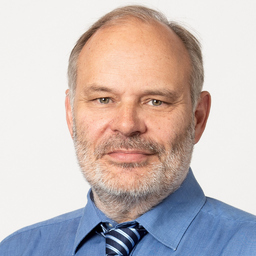Dr. Kai Hencken
Angestellt, Corporate Research Fellow for "Physical and Statistical Modelling", ABB Schweiz AG, Corporate Research
Baden 5 Dättwill, Schweiz
Werdegang
Berufserfahrung von Kai Hencken
Bis heute 2 Jahre, seit Juli 2022
Corporate Research Fellow for "Physical and Statistical Modelling"
ABB Schweiz AG, Corporate Research
5 Jahre, Juli 2017 - Juni 2022
Senior Principal Scientist for "Physical and Statistical Modeling"
ABB Schweiz AGDevelopment of physical and statistical models for industrial systems and applications. Use of a variety of simulation techniques to solve these physical models. Work on statistical models in the area of reliability and data analytics.
11 Jahre und 10 Monate, Sep. 2005 - Juni 2017
Principal Scientist
ABB Corporate Research
physikalische und statistische Modellierung. Simulation von Hochspannungsschaltern und Sensorsystemen Patent Reviewmanagement
8 Jahre, Sep. 1997 - Aug. 2005
Research Scientist
Universität Basel
PostDoc und Privatdozent in theoretischer Physik. Arbeit in Zusammenhang mit Experimenten am LHC (CERN), RHIC (BNL) und FAIR (GSI) Dozent für "mathematischen Methoden für Physiker und Nanowissenschaftler" Dozent am Graduiertenkolleg "Hadronen in Vakuum, in Kernen und in Sternen" Basel-Graz-Tübingen
2002 - 2005
Dozent
Berufsakademie Lörrach
2 Jahre, Sep. 1995 - Aug. 1997
Research Associate
Institute for Nuclear Theory, U Washington, Seattle, USA
Ausbildung von Kai Hencken
10 Jahre und 1 Monat, Juni 2000 - Juni 2010
Theoretische Physik
Universität Basel
elektromagnetische Prozesse in der Atom-, Kern-, und Teilchenphysik
4 Jahre und 1 Monat, Sep. 1990 - Sep. 1994
Theoretische Physik
Universität Basel
Elektron-Positron Paarproduktion in relativistischen Schwerionenkollisionen
5 Jahre, Okt. 1985 - Sep. 1990
Theoretische Physik
Universität Basel, Switzerland,
Sprachen
Deutsch
-
Englisch
-
Französisch
-
